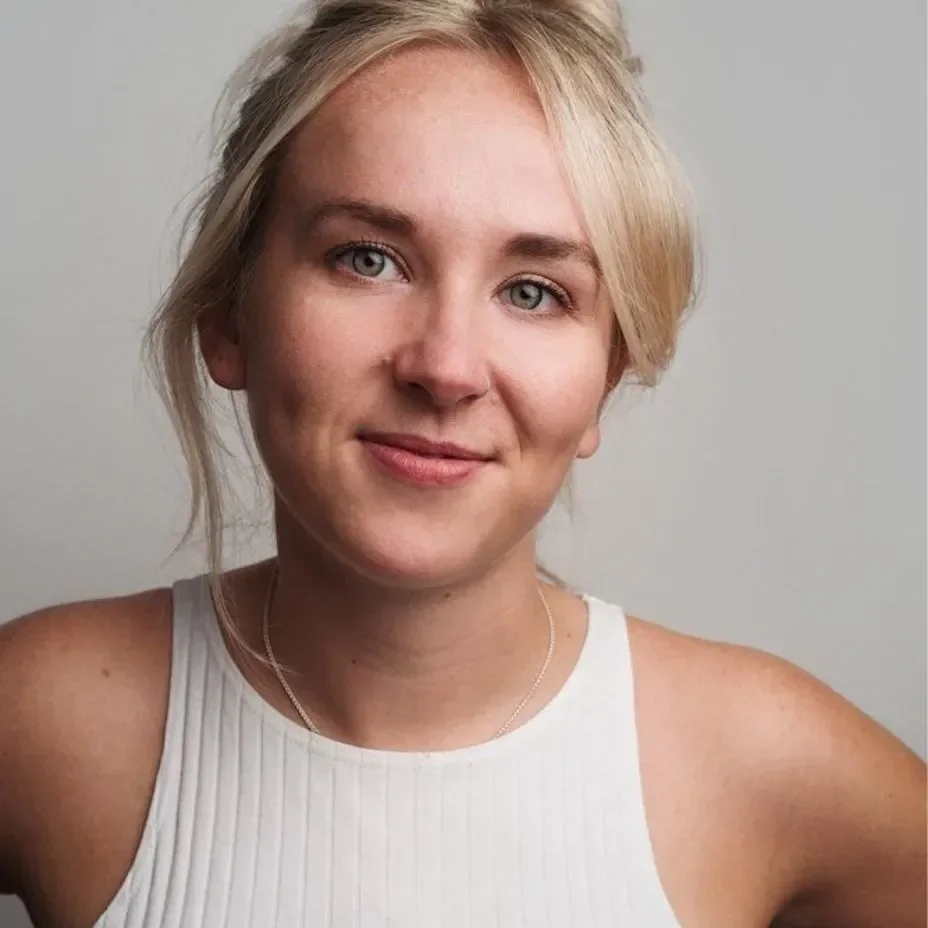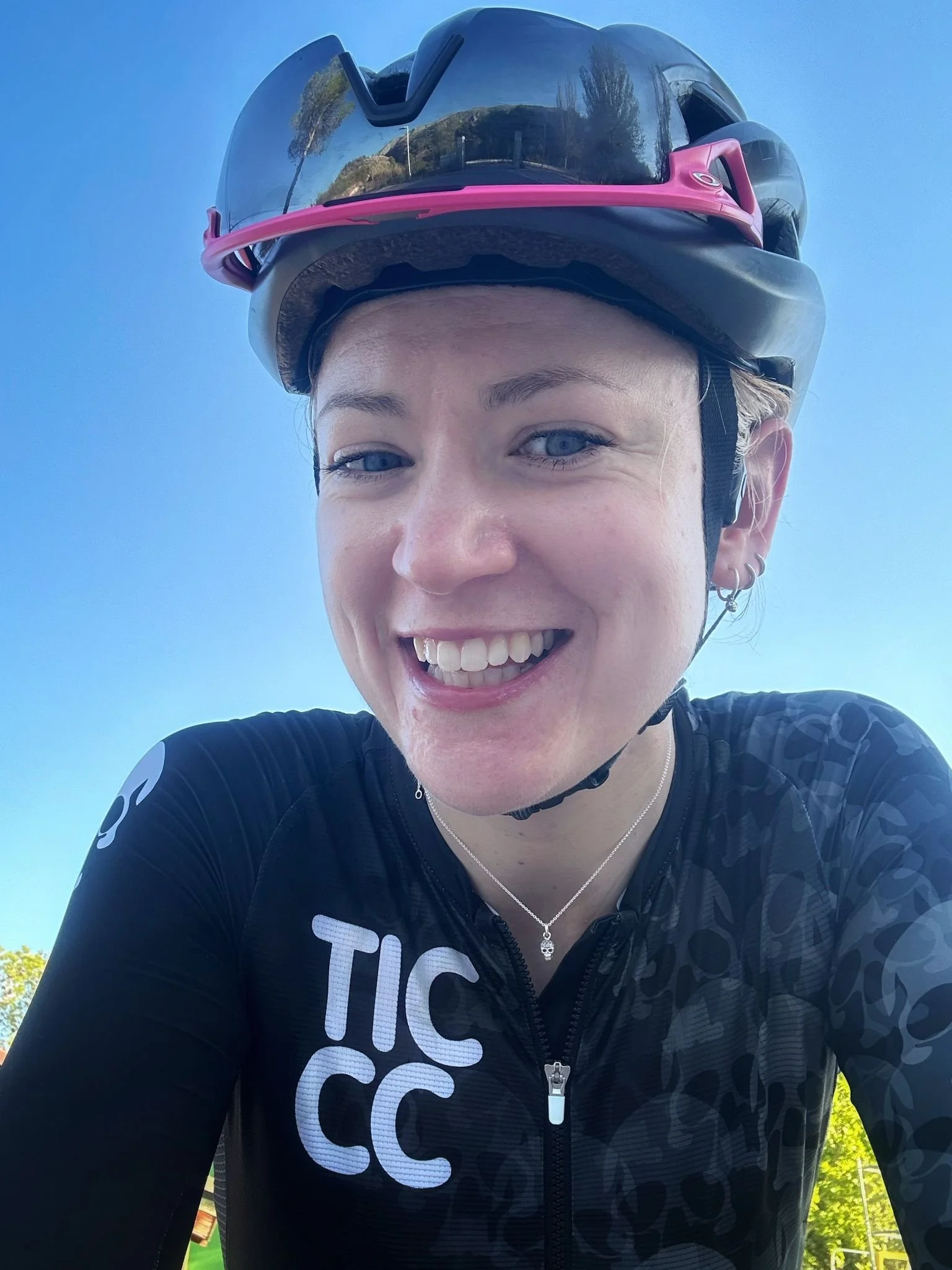ND Celebration Week 2025: Neurodiversity in Women’s Sport
Introduction
Determined to keep the momentum of Neurodiversity Celebration Week alive, we hosted three evening webinars and a smaller—but deeply moving—panel event that marked the launch of an inspiring photography project.
This first webinar of our Neurodiversity Celebration Week 2025 series was centred around Neurodiversity in Women’s Sport, and hosted by the infectiously enthusiastic Courtney Buchner. Across three powerful mini-panels, athletes and advocates unpacked gender stereotypes, neuro-affirming approaches, and the exciting future of women’s sport for neurodivergent athletes.
Courtney Buchner
Host - Courtney Buchner
Courtney is a neurodiverse, queer writer, comedian, actor, and sports content creator with over 20,000 followers and millions of views across her videos. She has collaborated with NIKE, ADIDAS, Arsenal and Chelsea Women’s football teams, and The FAWNL, using humour to make sport more accessible and engaging for new audiences. Selected for the BBC Content Creator Lab, she has also had a sold-out Edinburgh Fringe run with I Wrote This Show Last Night, later transferring to London. An award-winning writer, Courtney is developing Man On, a football-based TV pilot about a women’s team navigating financial struggles. Since her late ADHD diagnosis, she has used comedy and storytelling to challenge stereotypes, break down barriers, and advocate for more inclusive conversations around neurodiversity.
Panel 1: Breaking Down Gendered Stereotypes
Fiona Shorten
The evening opened with Fiona Shorten and Natasha Mills, who explored the impact of gender stereotypes in sport and how these intersect with neurodivergence.
Fiona is a dedicated advocate for neurodivergent representation in sport. Drawing on both lived experience and her athletic background, Fiona speaks powerfully about how gendered expectations—and misunderstandings around neurodivergence such as dyslexia—can create additional barriers for women. She calls for sport environments where neurodivergent women can be seen, heard, and supported without having to mask or conform to stereotypes.
Natasha is a People & Culture Consultant with extensive expertise in Equity, Diversity, Inclusion, and Anti-Discrimination (EDIA), particularly through her work at British Gymnastics. She writes and advocates on how to make organisations more inclusive—especially for neurodivergent individuals—emphasising flexibility, belonging and equitable opportunities. Her monthly newsletter Wellbeing with EDIA Perspectives provides ongoing commentary on these issues.
Natasha Mills
Both speakers shared how deeply ingrained expectations—about how women “should” behave, communicate, or perform—compound the challenges neurodivergent athletes already face. Natasha highlighted how dyslexia was often misunderstood in her early sporting career, while Fiona noted that traditional perceptions of femininity can make it harder for neurodivergent women to be seen and supported authentically.
“There’s this constant pressure to present yourself in a way that fits what people expect of women in sport, and if you’re neurodivergent, that can feel like you’re constantly out of step.” - Fiona
“When I was younger, people thought dyslexia just meant I couldn’t spell. They didn’t see how it affected the way I processed coaching, communication, and even confidence in sport.” - Natasha
The key message was clear: to move forward, sport must actively challenge stereotypes and ensure neurodivergent women are recognised on their own terms.
Panel 2: Towards a Neuro-Affirming Approach
The second mini-panel featured Shauna Clune and Dr Suzie Dick.
Shauna is an Assistant Clinical Psychologist and a committed advocate with Neurodiverse Sport. She brings her professional training and personal passion to her work in inclusion and accessibility for neurodivergent athletes. Shauna is particularly interested in how coaching environments can adapt to better suit different neurotypes, pushing for flexible practices and authentic support rather than superficial accommodations.
Suzie is a University Lecturer at Queen Margaret University with expertise spanning psychology, sociology, and education. She’s also an International Mountain Leader and a Fellow and Chartered Geographer with the Royal Geographical Society. Suzie’s work often explores how sport, education, and environment interact with identity and belonging—particularly for neurodivergent people—emphasising thoughtful advocacy, systemic change, and the importance of listening to lived experience.
Shauna Clune
The duo introduced practical strategies for creating neuro-affirming spaces in women’s sport:
“Flexibility is everything—whether that’s in how sessions are structured or how feedback is given. Neurodivergent athletes can’t always thrive in rigid systems.” - Shauna
They emphasised that support should go beyond “making allowances” and instead focus on building environments where neurodivergent athletes can thrive without masking or suppressing who they are. Shauna spoke about the need for flexibility in coaching and training, while Suzie shared experiences of advocacy—both personal and professional—that highlighted the power of listening and adapting.
“We need to stop thinking about inclusion as ticking a box. It’s about listening, adapting, and creating environments where athletes don’t feel they have to hide who they are.” - Suzie
This session underlined that neuro-affirming practice is not an optional extra; it’s central to enabling athletes to bring their full selves to sport.
Panel 3: Looking to the Future of Women’s Sport
In the final mini-panel, Sam Smith and Caragh McMurtry looked ahead to the opportunities on the horizon.
Caragh is a former British rower and now co-founder & CEO of Neurodiverse Sport. Her rowing career includes medalling at junior and U23 world levels, competing in the senior women’s eight at the 2013 & 2014 World Rowing Championships, and representing Team GB at the Tokyo 2020 Olympics. Diagnosed as autistic after her career began, Caragh has spoken openly about misdiagnosis, masking, and burnout in elite sport. These experiences now fuel her advocacy: through Neurodiverse Sport, she works to ensure that neurodivergent athletes are supported to thrive, not just survive, in performance environments.
Sam Smith
Sam is a former British number one tennis player, Olympian, broadcaster, and late-diagnosed autistic woman. Over the course of her playing career, Sam broke barriers in British tennis, reaching the third round at Wimbledon and representing her country on the world stage. Yet, throughout her career, conversations about neurodiversity were absent—something she reflects on powerfully in her advocacy today. By sharing her story, Sam shines a light on the hidden challenges and strengths of neurodivergent athletes, helping to reshape the future of women’s sport.
Their discussion touched on advocacy, visibility, and systemic change. Sam reflected on her journey in elite tennis and how conversations around neurodiversity were absent during her career:
“During my tennis career, no one ever mentioned neurodiversity—it just wasn’t part of the conversation. Looking back, I realise how much difference that awareness could have made.” - Sam
While Caragh highlighted how advocacy is reshaping both women’s sport and neurodiversity awareness more broadly:
“Advocacy has changed the landscape. We’re finally seeing neurodiversity recognised in sport, and women are leading the charge in making it part of the bigger inclusion agenda.” - Caragh
Together, they painted a hopeful picture of a future where neurodivergent athletes are not only included but celebrated as leaders and innovators in sport.
Final Thoughts
The Neurodiversity in Women’s Sport webinar set the tone for the week: honest, inspiring, and action-focused. It reminded us that inclusion is about more than just access—it’s about dismantling barriers, affirming identities, and building futures where neurodivergent women can thrive in every sporting arena.
Next, we’ll share highlights from our second webinar, Neurodivergent Excellence in Sport, where panellists showcased the achievements of neurodivergent athletes and explored what makes their contributions so powerful.
Follow
Courtney Buchner (host)
LinkedIn: Courtney Buchner
Instagram: @courtneybcomedy
TikTok: @courtneybuchner
Fiona Shorten (panel 1)
Instagram: @ultra_fiona
Neurodiverse Sport Ambassadors profile neurodiversesport.com
Natasha Mills (panel 1)
LinkedIn: Natasha Mills
Shauna Clune (panel 2)
LinkedIn: Shauna Clune, MSc
Dr Suzie Dick (panel 2)
LinkedIn: Dr Suzie Dick
Sam Smith (panel 3)
PepTalk speaker profile page: PepTalk
Caragh McMurtry (panel 3)
LinkedIn: Caragh McMurtry OLY





